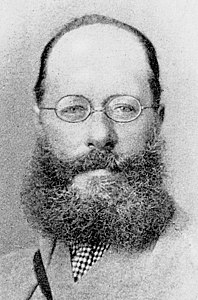Analysis of Limerick: There was a young person whose history
Edward Lear 1812 (Holloway) – 1888 (Sanremo)
There was a young person whose history
Was always considered a mystery.
She sate in a ditch,
Although no one knew which,
And composed a small treatise on history.
| Scheme | AABBA |
|---|---|
| Poetic Form | Limerick (80%) Tetractys (60%) Cinquain (20%) |
| Metre | 1101101100 110100100 11001 11111 00101101100 |
| Closest metre | Iambic tetrameter |
| Characters | 166 |
| Words | 31 |
| Sentences | 3 |
| Stanzas | 1 |
| Stanza Lengths | 5 |
| Lines Amount | 5 |
| Letters per line (avg) | 26 |
| Words per line (avg) | 6 |
| Letters per stanza (avg) | 130 |
| Words per stanza (avg) | 29 |
Font size:
Submitted on May 13, 2011
Modified on March 05, 2023
- 9 sec read
- 83 Views
Citation
Use the citation below to add this poem analysis to your bibliography:
Style:MLAChicagoAPA
"Limerick: There was a young person whose history" Poetry.com. STANDS4 LLC, 2024. Web. 29 Apr. 2024. <https://www.poetry.com/poem-analysis/9665/limerick%3A-there-was-a-young-person-whose-history>.


Discuss this Edward Lear poem analysis with the community:
Report Comment
We're doing our best to make sure our content is useful, accurate and safe.
If by any chance you spot an inappropriate comment while navigating through our website please use this form to let us know, and we'll take care of it shortly.
Attachment
You need to be logged in to favorite.
Log In